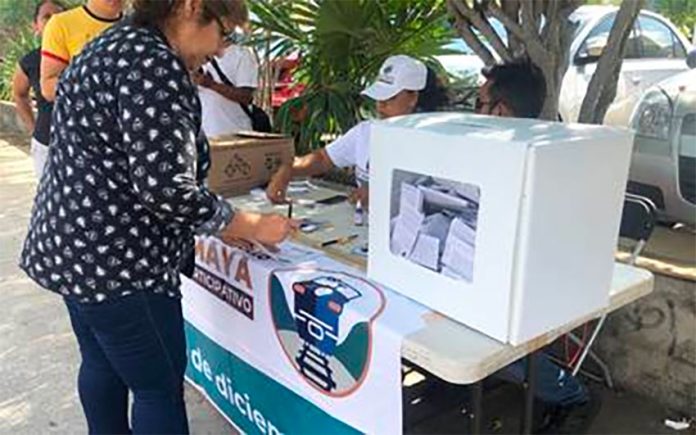The United Nations said Thursday that the consultation on the government’s Maya Train project failed to meet all international human rights standards.
The Mexico office of the United Nations High Commissioner for Human Rights (ONU-DH) said in a statement that during the month-long consultation process in southeastern states it observed that the information presented to indigenous communities only outlined the potential benefits of the project and not the negative impacts it may cause.
International standards establish that a consultation process with indigenous communities must be carried out prior to a project being executed in a manner that is culturally appropriate, serves to inform and allows free participation.
However, during information meetings observed by the ONU-DH in Campeche, Yucatán, Quintana Roo, Chiapas and Tabasco, community members asked questions about the possible negative impacts of the project on several occasions “without obtaining a clear and complete response,” the statement said.
The ONU-DH said that the absence of studies about the potential impacts or “the failure to disseminate” the studies made it difficult for people to reach an informed opinion about the Maya Train before Sunday’s vote, which found 92% support for the 120-billion-peso (US $6.3-billion) project.
It also said it observed that some people expressed support for the project in the erroneous belief that if they didn’t, they wouldn’t receive assistance from authorities to meet their basic needs such as water, housing, healthcare and education.
The ONU-DH said that authorities failed to make it completely clear that government aid wasn’t conditional on people’s support for the Maya Train.
In addition, the ONU-DH said that indigenous communities didn’t participate in the design of the consultation.
As a result, the consultation period was too short, translations of materials into indigenous languages were inadequate (if they existed at all) and many people were unable to travel to meetings due to a lack of resources.
“The majority of those who participated were municipal and ejido [community land] authorities, leaving other groups and people who form part of the community on the outside,” the ONU-DH said.
The UN office said it was particularly concerned about “the low participation and representation of indigenous women” in the consultation process despite efforts to encourage their inclusion.
Representatives of the ONU-DH attended a total of 12 regional information and consultation meetings on the invitation of the National Institute of Indigenous Peoples, the National Tourism Promotion Fund (Fonatur), which is in charge of the Maya Train project, and the Interior Secretariat.
After Sunday’s vote, Fonatur chief Rogelio Jiménez Pons said that work will begin on the project in late March or early April.
Source: El Universal (sp)
